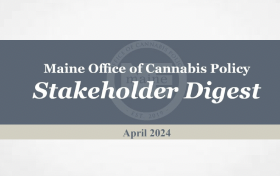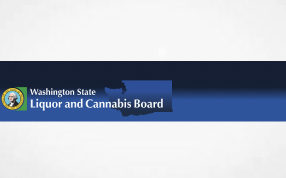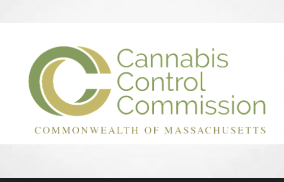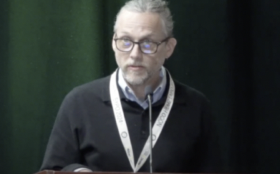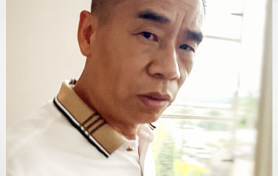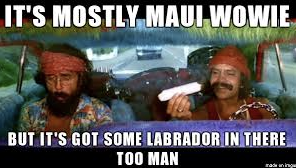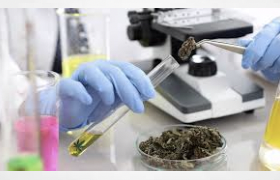SUBSTITIVE TEXT OF THE DRAFT REGULATORY LAW ON THE USE OF DRUGS FORMULATED WITH CANNABIS
We are advancing the regulation of Medicinal Cannabis in Brazil. We seek fair legislation that includes cultivation and makes access to medicine cheaper. Check the substitute text proposed by deputy Paulo Teixeira, president of the Special Commission, and the rapporteur, deputy Luciano Ducci.
SUBSTITUTIVE TO DRAFT LAW No. 399, 2015
(COORDINATION OF TEMPORARY COMMITTEES)
Provides for cultivation, processing, research, production and marketing of products based on Cannabis spp.
The National Congress decrees:
PRELIMINARY PROVISIONS
Art. 1 The activities of cultivation, processing, research, storage, transport, production, industrialization, commercialization, import and export of products based on Cannabis spp. allowed under this Law.
Art. 2 For the purposes of this Law, the following definitions are used, in addition to those contained in article 1 of the Single Convention on Narcotic Drugs, promulgated by Decree nº 54.216, of August 27, 1964:
I – Cannabis spp. – any of the plant varieties of the genus Cannabis.
II – Cannabinoids – natural or synthetic chemical compounds that have an affinity for cannabinoid receptors present in human and animal cells;
III – Phytocannabinoids – cannabinoids that occur naturally in Cannabis plants.
IV – Psychoactivity – property of a substance or set of chemical substances capable of altering the human psyche;
V – Cannabidiol or CBD – phytocannabinoid without psychoactive action, with chemical name: 2 – [(1R, 6R) -3-methyl-6- (1-methylethyl) -2-cyclohexen-1-yl] -5-pentyl-1 , 3-Benzenodiol and molecular formula: C21H30O2;
VI – Tetrahydrocannabinol, Δ9-THC or THC – phytocannabinoid with psychoactive action, with chemical name: (6AR, 10aR) -6,6,9-trimethyl-3-pentyl-6a, 7,8,10a-tetrahydro-6H-benzo [c] chromen-1-ol and molecular formula: C21H30O20;
VII – Industrial hemp – variety of the Cannabis spp. without psychoactive action, with a content of Δ9 –THC limited to 0.3% (three tenths percent) based on its dry weight, used for non-medicinal purposes;
VIII – Cannabis Products – products made from seeds or parts of the Cannabis plant, with or without the addition of other substances.
IX – Cannabinoid medicine – pharmaceutical product, containing natural or synthetic cannabinoids, technically obtained or elaborated, for prophylactic, curative or palliative purposes.
X – Medicines derived from Cannabis – cannabinoid medicine containing only natural cannabinoids.
XI – Cannabis derived herbal medicine – cannabinoid medicine with exclusive use of parts of the plant, with safety and efficacy based on clinical evidence and with constant quality, without isolated or highly purified active substances.
XII – Traditional herbal product derived from Cannabis – product obtained with the exclusive use of active raw materials of the plant whose safety and effectiveness are based on data of safe and effective use, published in the technical-scientific literature, as long as they are designed to be used under prescription legally qualified professional.
XIII – Master herbal products derived from Cannabis – masterful preparation obtained with the exclusive use of active raw materials from the plant, from a prescription of a qualified professional, intended for an individualized patient, and which establishes in detail its composition, pharmaceutical form, dosage and how to use it;
XIV – Official herbal products derived from Cannabis – workshop preparation, obtained with the exclusive use of active raw materials from the plant whose formula is inscribed on the Brazilian Pharmacopoeia Phytotherapics Form or in others recognized by the federal health agency, provided that they are designed to be used under prescription from a legally qualified professional;
XV – Quota of cultivation – quantity of the Cannabis plant that the legal entity will be able to grow and process, upon request and authorization from the government.
XVI – Cultivation of the Cannabis plant – cultivation process that can include the activities of planting, cultivating, harvesting, importing, exporting, acquiring, storing, transporting, shipping and processing until the drying stage of the Cannabis plant;
XVII – Research Institution – an academic research body or entity of the direct or indirect public administration, or a private legal entity that conducts non-profit academic research.
XVIII – Research – activity carried out in a laboratory in a containment regime, as part of the research process of plants subject to special control, which may include, in the experimental scope, planting, culture, harvesting, transportation, transfer, import, export, storage, processing, even the development of experimental products, as well as the disposal of plants and products subject to special control;
XIX – Security plan – plan that includes the internal and external perimeter of the facilities, and must include a physical, operational and contingency plan, with a view to preventing deviations;
XX – Legal Responsible Person – individual designated by statute, articles of association or minutes of constitution charged with representing the legal person, actively and passively, in judicial and extrajudicial acts;
XXI – Technical responsible – higher education professional, legally qualified by the respective professional council to exercise technical responsibility for the activity that the legal entity and patient associations carry out in the area related to the products covered by this law;
XXII – Casa de Vegetação – place for the planting of Cannabis, of the greenhouse type or another structure suitable for planting plants, provided that it is designed and maintained in order to prevent the access of unauthorized persons, as well as to ensure containment, non-dissemination in the environment and equipped with a video monitoring system inside.
CANNABIS GROWTH
3rd. Cannabis cultivation is allowed throughout the national territory, by legal entity, provided that for the determined purposes and in accordance with the rules provided for in this Law.
Art. 4 For the cultivation of Cannabis, certified seeds or seedlings must be used, in accordance with Law No. 10,711, of August 5, 2003, or clones obtained through genetic improvement, derived from them.
5th. Legal entities interested in cultivating Cannabis must be previously authorized by the government, with the following minimum control conditions:
I – cultivation quota, sufficient to meet pre-contracted or pre-determined demand, which must be included in the application for authorization for cultivation;
II – traceability of production, from seed acquisition to final processing and disposal;
III – security plan, which must include measures that meet all the security requirements provided for in this Law, aiming at preventing deviations;
IV – presence of a technical officer, who will be in charge of ensuring the application of good agricultural practices techniques, in accordance with rules and guidelines issued by the federal agricultural agency, as well as being responsible for controlling the levels of Δ9 –THC, contained in the plants Cannabis, according to the rules defined in this Law.
§1. The cultivation of Cannabis for medicinal purposes, for human or veterinary use, must be done exclusively in Casa de Vegetação;
§2. Industrial hemp can be grown in an open environment, as long as it is surrounded, controlled, designed and maintained in order to prevent access by unauthorized people, as well as to ensure containment and non-dissemination in the environment.
§3. For inspection purposes, psychoactive Cannabis plants for medicinal purposes, those with Δ9 –THC content greater than 1% (one percent) will be considered, as well as non-psychoactive Cannabis plants for medicinal purposes, those with Δ9 –THC equal to or less than 1% (one percent), based on its dry weight.
§4. For veterinary use, only non-psychoactive Cannabis plants for medicinal purposes will be allowed.
§5. The cultivation quota, referred to in item I of the caput, must specify the quantity of psychoactive and non-psychoactive Cannabis plants for medicinal purposes, as well as the area planted with industrial hemp, in addition to its destination, being the responsibility of the legal responsible to veracity of the information provided.
§6. The requirements for the granting of cultivation quotas will be established by the government and the analysis of requests should always be carried out based on objective criteria.
6th. The location of the cultivation of Cannabis plants for medicinal purposes or industrial hemp and its adjacent areas must have their perimeter protected, in order to prevent access to unauthorized persons and to ensure the necessary controls to mitigate the risks of dissemination and diversion , provided with a video monitoring system at all entry points, with restricted access, security alarm system, without prejudice to other security measures that may be adopted.
§1. For the cultivation of Cannabis plants for medicinal purposes, it will be required, in addition to the requirements provided for in the caput, the installation of electric fences that protect the entire perimeter of the facilities.
§2. The place where Cannabis plants are grown for medicinal purposes or industrial hemp will not be ostensibly identified with the fancy name or corporate name, or any other name that makes it possible to identify the activities developed there.
Art. 7 Living pharmacies within the scope of the Unified Health System, established in the Ministry of Health Ordinance No. 886, of April 20, 2010, are authorized to grow and process Cannabis plants for medicinal purposes, provided that the safety requirements for the cultivation, storage, transportation and prescription provided for in this Law, without prejudice to the application of the corresponding infra-legal rules.
Art. 8 The request for authorization for cultivation, as well as the request for quotas for the cultivation of Cannabis plants for medicinal purposes for human use will be addressed to the federal health agency, while for industrial hemp plants and Cannabis plants for medicinal purposes for use veterinarian will be addressed to the federal agricultural agency.
§1. The inspection of compliance with the safety requirements and the limits of Δ9 –THC levels of the plants required for the cultivation of Cannabis, will be carried out by the body responsible for granting authorization, which will also define the penalties applicable in case of non-compliance.
§2. Compliance with the requirements referred to in this Law does not exempt from meeting specific requirements demanded by the government, by regulation, as a condition for granting authorization for the cultivation of Cannabis plants for medicinal purposes or industrial hemp.
OF RESEARCH WITH CANNABIS PLANTS AND THEIR DERIVATIVES
Art. 9 Research activities with Cannabis plants and their derivatives are free, as long as the provisions of this Law and other corresponding legal, normative and regulatory instruments are complied with.
Art. 10 Research institutions will be able to plant, cultivate, harvest, manipulate, process, transport, transfer and store, plants, seeds, seedlings and Cannabis derivatives, as well as import and export seeds and derivatives, as long as previously authorized by the government.
§1. Authorization for the import, acquisition and storage of other products, substances and drugs subject to special control, will be granted by the federal health agency, and their quantities must be clearly described in the technical-scientific research project.
§2. Legal entities and patient associations already authorized to plant, cultivate and harvest Cannabis plants for the manufacture of medicines or non-medicinal products may also obtain the authorizations provided for in this article.
Art. 11. The cultivation of Cannabis for research for the development of medicines, as well as for the development of non-medicinal products, shall comply with the provisions of Articles 4 to 6 and 8 of this Law, applying the specific rules for each case.
Art. 12. The protocols and requirements for conducting clinical trials with drugs and products based on Cannabis must obey the regulations already issued by the federal health agency, notably the Resolution of the Collegiate Board – RDC nº 9, of February 20, 2015 and those who succeed him.
Single paragraph. The provisions of art. 11 of Law No. 13,243, of January 11, 2016.
OF STORAGE AND TRANSPORT OF PLANT SEEDS, INPUTS AND EXTRACTS OF CANNABIS
Art. 13. The storage of seeds, plants, inputs and extracts of Cannabis, must be done in a closed place, built in masonry, designed and kept under lock or other security device, in order to prevent the access of people unauthorized, as well as ensuring containment, non-dissemination in the environment, and must also be equipped with a video monitoring system.
Single paragraph. The technician responsible for the establishment authorized for the cultivation of Cannabis is responsible for the storage, custody, distribution and control of its derivatives, in accordance with the provisions of the corresponding regulations.
Art. 14. The transport of seeds, plants, inputs and Cannabis extracts will be the responsibility of the establishment authorized for its cultivation, in the person of its legal guardian, being obliged to guarantee safe transport, in vehicles equipped with equipment necessary to maintain the specific conditions for the transportation of the product covered by this Law.
§1. Transportation must be carried out in a vehicle of the legal entity responsible for the cultivation of Cannabis or of a specialized company, which will respond jointly for all legal purposes.
§2. Vehicles used to transport seeds, plants, inputs and Cannabis extracts will not be ostensibly identified with the fancy name, corporate name or any other name that makes it possible to identify the products transported there.
DISPOSAL
Art. 15. Disposal of propagating material, dried or fresh plant species of the Cannabis plant will be done in accordance with the rules issued by the federal health agency, in the case of Cannabis for medicinal purposes for human use, and by the federal agricultural agency, in the case of industrial hemp and cannabis for veterinary medicinal purposes.
OF CANABINOID MEDICINES
Art. 16. Cannabinoid medicines for human use will have their production and commercialization authorized by the federal health agency, and those for veterinary use by the federal agricultural agency, applying the provisions of Law No. 5,991, of December 17, 1973, and of Law 6,360, of September 23, 1976, as well as the infra-legal rules corresponding to the respective sanitary, security, registration and regulatory controls.
Art. 17. The cannabinoid medication packaging and labels will necessarily display information on the levels of cannabinoids present in its formula.
Single paragraph. Cannabinoid drugs and their updates should be marketed in tamper-evident and easily identified packaging.
Art. 18. Cannabinoid medications are subject to special control, applying all corresponding laws and regulations.
§1. The dispensation, in any capacity, of cannabinoid medicines for human and veterinary use, may only occur upon medical prescription, as defined by the federal health agency, subject to the provisions of art. 20 of this Law.
§2º. For the definition of the type of prescription to be chosen for the dispensation of cannabinoid drugs, the following must be observed:
I – formulations with levels of Δ9 –THC equal to or less than 0.3% (three tenths percent) will be considered as non -psychotics; and
II – formulations with Δ9 –THC levels greater than 0.3% (three tenths percent) will be considered psychoactive;
§3. Cannabinoid medicines for veterinary use can only be produced with levels of Δ9 –THC equal to or less than 0.3% (three tenths percent).
Art. 19. Magistral pharmacies will be able to handle and dispense cannabinoid medications, as long as they obtain specific authorization from the federal health agency and that the provisions of this Law and the corresponding infra-legal rules are observed.
Single paragraph. The federal health agency will issue regulations determining the conditions for the acquisition and storage of cannabis supplies, by magistral pharmacies.
Art. 20. Cannabinoid drugs may be produced and marketed in any pharmaceutical form.
Single paragraph. There will be no restriction on the criteria for the prescription of cannabinoid drugs, provided that it is done by a qualified professional and with the consent of the patient or legal guardian.
OF CANNABIS PRODUCTS WITHOUT MEDICINAL PURPOSES
Art. 21. The production and commercialization of any Cannabis products obtained through industrial hemp is authorized, provided that they are not intended for medical use and that they are not claimed to be prophylactic, curative or palliative.
§1. Products such as cosmetics, personal care products, cellulose, fibers, products for veterinary use without medicinal purposes, among others, can be produced and marketed, as long as their formulations contain levels of Δ9 –THC equal to or less than 0 , 3% (three tenth percent).
§2. The production and commercialization of foodstuffs and food supplements containing Cannabis is authorized, as long as their formulations are completely free of Δ9 –THC.
Art. 22. The infralegal laws and regulations corresponding to the respective sanitary, security, registration and regulatory controls apply to the products referred to in the previous article.
OF ASSOCIATIONS OF PATIENTS WITH NO PROFITABLE PURPOSES
Art. 23. The associations of non-profit patients, legally constituted and created specifically for this purpose, will be able to cultivate Cannabis for medicinal purposes for human use, with the aim of providing masterful products or herbal medicines derived from Cannabis to their members , adopting as minimum production rules the good practices of processing and storage of medicinal plants, preparation and dispensing of masterful and workshop products of medicinal plants and herbal medicines foreseen for live pharmacies within the scope of the Unified Health System (SUS), established in RDC nº 18, of April 3, 2013 and those that succeed it, observing the following:
I – for the cultivation of Cannabis plants for medicinal purposes, the provisions of arts. 4th to 6th and 8th of this Law;
II – for the storage and transportation of Cannabis seeds, plants, supplies and extracts, the provisions of arts. 12 and 13 of this Law, except for the possibility of using a registered vehicle in the name of the legal guardian of the patients’ association, applying all other rules, including as to joint and several liability;
III – for the disposal of propagating material, dried or fresh plant species of the Cannabis plant, the provisions of art. 14 of this Law;
III – the products made by the patient associations are subject to special control, the provisions of art. 18 and 20 of this Law;
IV – the packaging and labels of the products prepared by the patient associations will necessarily display information on the levels of cannabinoids present in its formula;
§1. For the preparation of other products derived from Cannabis that have a prophylactic, curative or palliative purpose, associations must comply with all rules of good manufacturing practices already provided by the federal health agency.
§2. Patient associations will be able to partner with public or private entities to carry out quality tests on the cannabis products they prepare, in order to verify whether they are suitable for human consumption, as well as for carrying out research.
IMPORT AND EXPORT
Art. 24. Legal entities are allowed to import and export seeds, plants or parts thereof, inputs, extracts, cannabis products, exclusively for medical or industrial purposes, and all relevant legislation, as well as infralegal rules corresponding to the respective sanitary, agricultural, security and regulatory controls.
FINAL DISPOSITIONS
Article 25. Prescribing, dispensing, delivering, distributing and marketing medicinal teas or cannabis products in the form of a plant drug, its parts or seeds, is prohibited, even after the stabilization and drying process, Art. individuals.
Art. 26. Cannabinoid medications will be incorporated within the scope of the Unified Health System after the requirements foreseen in the corresponding norms are fulfilled.
Art. 27. Actions taken in accordance with this Law are considered lawful, not characterizing the types of penalties or giving rise to the application of the penalties provided for in Law 11.343, of August 23, 2006.
Art. 28. The non-profit patient associations, mentioned in art. 23 of this Law, constituted until the date of its publication, will have a term of twenty-four months, counted from the same date, to adapt to its provisions.
Art. 29. Law 11.343, of August 23, 2006, becomes effective with the following changes:
“Art.2º ………………………………………………………… ……………………
§ 1 The Union shall authorize the planting, cultivation and harvesting of the vegetables referred to in the caput of this article, exclusively for medicinal, veterinary, industrial and scientific purposes, at a predetermined place and term, upon inspection, respected the aforementioned reservations. (NR) ”
…………………………………………………………………………………………
Article 73. The Union may establish agreements with the States and the Federal District, aiming at:
I – the prevention and repression of illicit traffic and the improper use of drugs, and with Municipalities, with the objective of preventing the misuse them and to enable the attention and social reintegration of drug users and dependents;
II – the licensing and inspection of the activities referred to in § 1 of art. 2nd of this Law. (NR) ”
Art. 30. Failure to comply with the requirements referred to in this Law will result in the sanctions provided for in Law No. 6,437, of August 20, 1977, without prejudice to the applicable civil or penal sanctions.
Art. 31. The Executive Branch will regulate this Law within ninety days after its publication.
Art. 32. This Law enters into force on the date of its publication.
Sessions Room, from 2020.
Luciano Ducci
Federal Deputy (PSB / PR)
Rapporteur


